Key Points:
- 18-20 hours of sleep a day may spell lazy to some. But lions live in a very hot climate and expend a lot of energy when they hunt, so they sleep a lot, sometimes up to 24 hours.
- The opossum, the only marsupial in America, also naps 18-20 hours a day. Once it finds a nice spot to camp out, it hits the hay hard.
- Known as “the couch potato of the sea,” the nurse shark can pump water over its gills without moving, allowing it to chill on the ocean floor for over 12 hours a day.

Sure, last weekend, you enjoyed a 32-hour stream-a-thon and are now social media friends with the delivery driver. Still, you’re probably more active than the layabouts who made our 15 laziest animals in the world list!
#15 Laziest Animal: Cuckoo Bird
Cuckoo birds do a lot of flapping around, but they’re lazy parents! Instead of incubating their own eggs, cuckoos lay them in other birds’ nests! It’s known as “brood parasitism,” and practitioners can disguise their shells to resemble the eggs of their “sitters.” Offloading parenting responsibilities? That definitely qualifies as lazy!
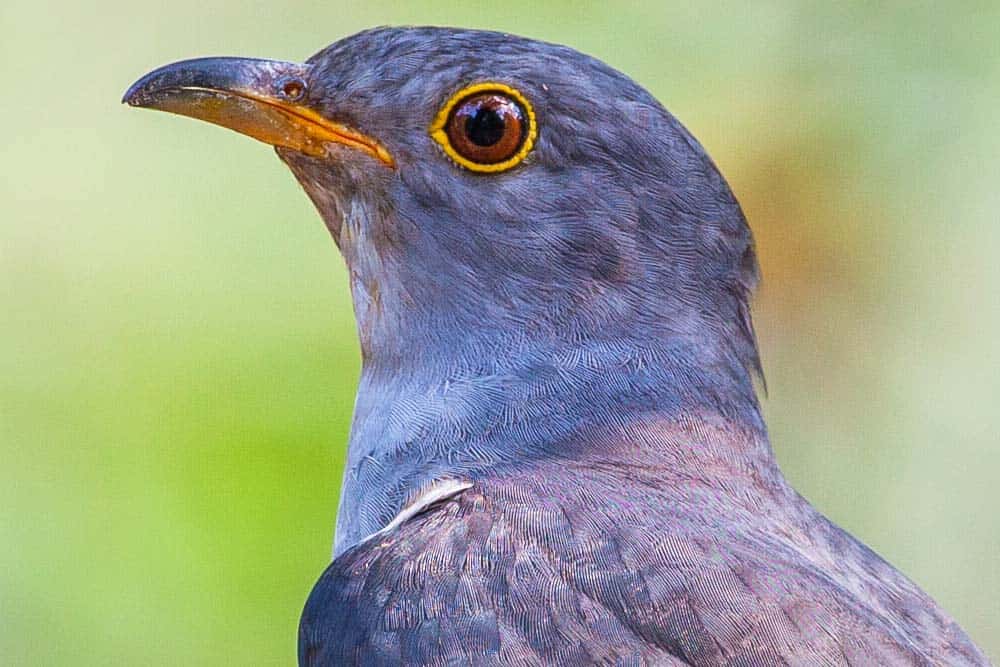
Cuckoo birds lay their eggs in other birds’ nests, which is known as “brood parasitism.”
©Sumruay Rattanataipob/Shutterstock.com
Cuckoo Bird Trivia Fact
Cuckoo birds enjoy a “cosmopolitan distribution,” meaning they live on every continent except Antarctica.
#14 Laziest Animal: Lemur
Lemurs are lethargic loafers who sleep 16 hours a day. Typically, they spend their waking hours alone and eating. But when it’s time to hit the hay, lemurs convene and form sleep pods.
Mainly found in east coast of Africa, the only habitat for wild lemurs exists. Interestingly enough, some lemur species were introduced by humans to different parts of the world. All and all, there are over 100 different species of lemur in all shapes and sizes. Although, lemurs are a female-dominant species, meaning there are more females than males.
Both of which are pretty lazy!

Lemurs sleep for up to 16 hours a day.
©Jearu/Shutterstock.com
Lemur Trivia Fact
Lemurs only live in Madagascar, an island country off Mozambique‘s coast. Click here to learn more about lemurs, one of the most endangered animals on Earth.
#13 Laziest Animal: Pig
Pigs enjoy a good mud frolic. They also value sleep and do it for about 12 to 14 hours a day! Being social animals, pigs love to cuddle up for naps. To ensure they’re happy and healthy, farmers keep their slumber pens dry, balmy, and draft-free.
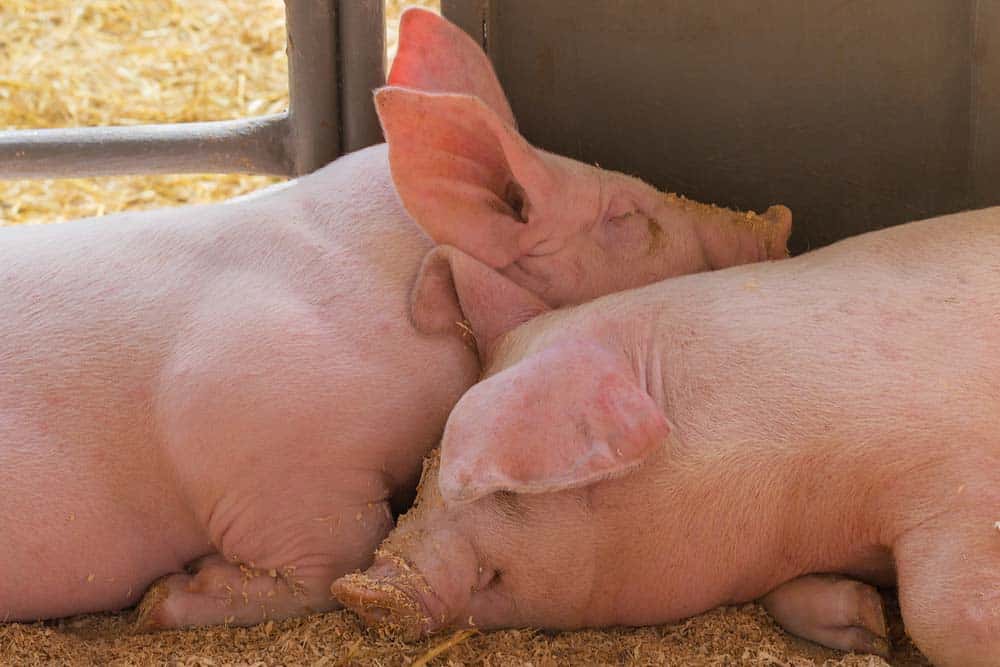
Pigs sleep between 12 and 14 hours a day.
©YRABOTA/Shutterstock.com
Pig Trivia Fact
Pigs were the first animals domesticated by humans. Click here to learn more about pigs, which have four toes on each foot.
#12 Laziest Animal: Nurse Shark
Most sharks are perpetual motion machines because their breathing apparatus requires movement. But not the nurse shark, affectionately known as “the couch potato of the sea.” The species can pump water over its gills without moving, allowing individuals to chill on the ocean floor for over half the day — every day. At night, they forage. But nurse sharks don’t require much food, and what they do eat is lazily sucked up, not hunted.
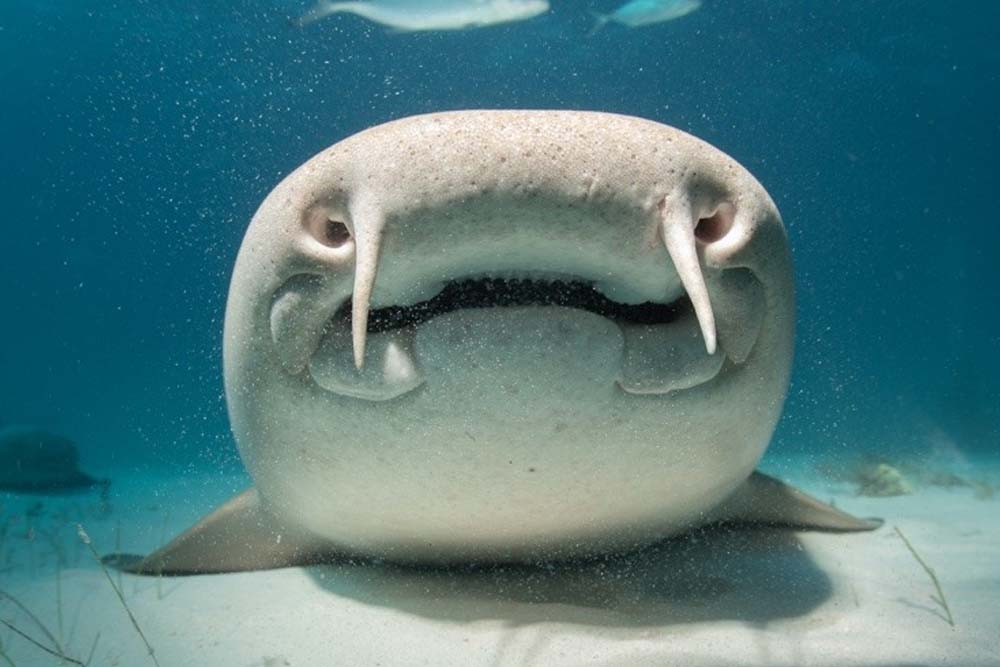
The nurse shark can pump water over its gills without moving, allowing individuals to stay on the ocean floor for over half the day.
©Maui Topical Images/Shutterstock.com
Nurse Shark Trivia Fact
Nurse sharks have litters of up to 25 pups! Click here to learn more about nurse sharks, which are commonly found in Central American waters.
#11 Laziest Animal: Giant Panda
Giant pandas perfected the art of segmented sleep. The iconic black-and-white bears sleep about 12 hours a day in three-hour stints. Why so much shut-eye? Blame it on the bamboo, their main food source. Pandas love it, but bamboo is low on nutrients, so they must eat at least 44 pounds a day to stay alive! All that chewing and digesting tires out the system.
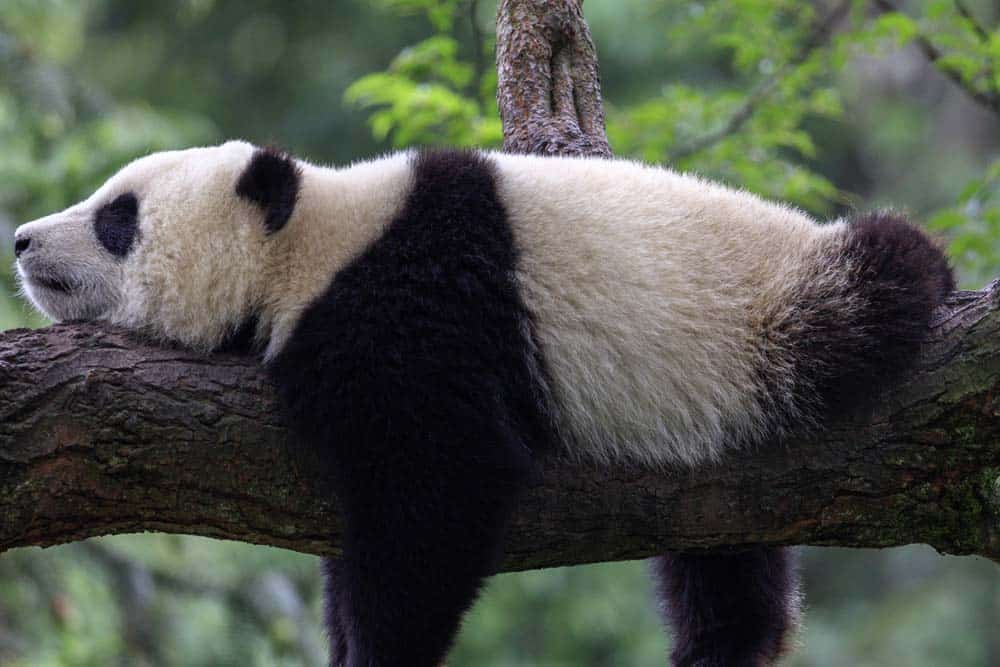
Bamboo is low on nutrients, so giant pandas must eat at least 44 pounds a day.
©clkraus/Shutterstock.com
Giant Panda Trivia Fact
Giant pandas don’t enjoy meal variety. Instead, bamboo makes up 99 percent of their diet! Click here to learn more about giant pandas, which are losing their habitats at alarming rates.
#10 Laziest Animal: Echidna
Echidnas are prickly, ground-dwelling mammals that sleep 12 hours a day. And who can blame them! The poor echidnas are stuck in Australia’s hot zone, but they can’t sweat or pant to cool themselves down! At night, they wake and slowly forage for food. But once the sun rears its head, it’s back to slumbering in the shade.
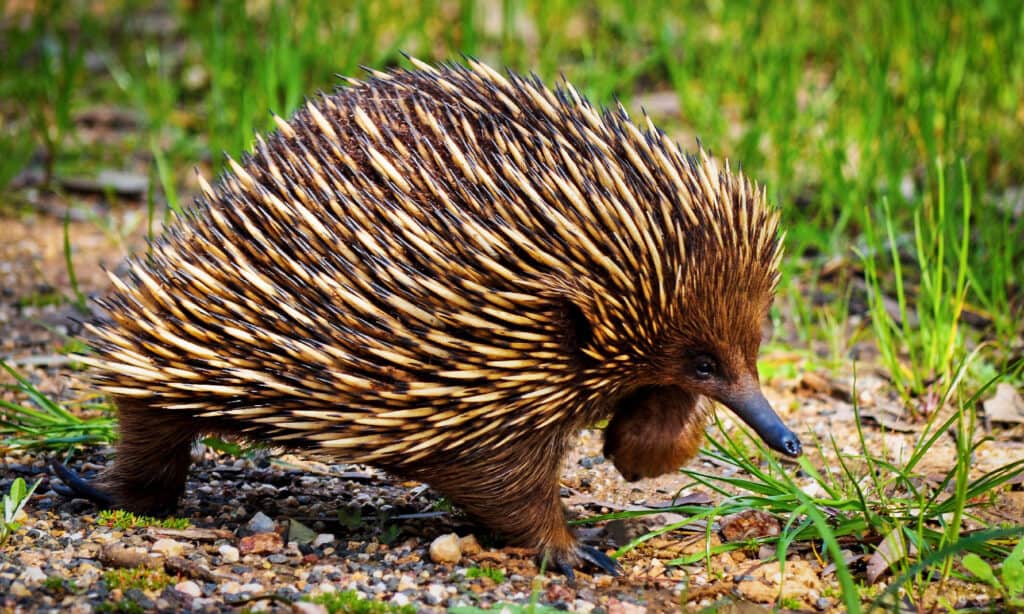
Echidnas live in Australia’s hot zone, so they forage for food at night and sleep during the day in the shade.
©Vicki Cain/Shutterstock.com
Echidna Trivia Fact
Echidnas are one of two mammals that lay eggs. The other is the platypus. Click here to learn more about echidnas, which used to be called the “spiky anteater.”
#9 Laziest Animal: Owl Monkey
The only nocturnal “true monkey,” owl monkeys, with their 17-hour slumbers, easily made our list of laziest animals. Also known as “night monkeys,” they eat and socialize after dark. The vocal primates live in family units consisting of monogamous parents and their dependent offspring. In owl monkey world, dads are the primary caregivers.
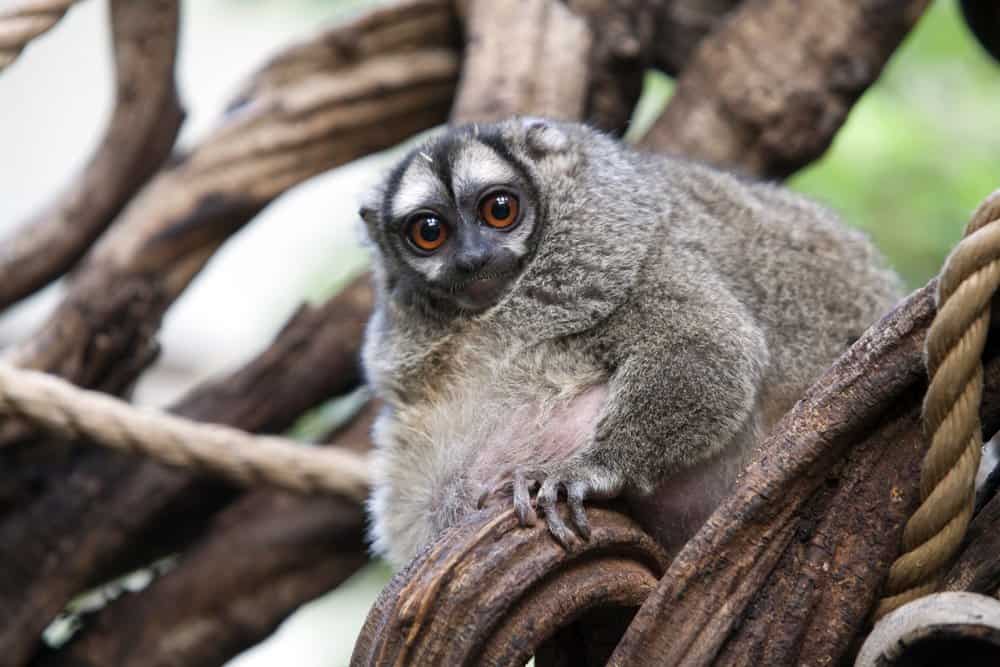
Owl monkeys are the only nocturnal “true monkey” and sleep for up to 17 hours a day.
©Edwin Butter/Shutterstock.com
Owl Monkey Trivia Fact
Own monkeys have super night vision but can’t see colors.
#8 Laziest Animal: Python
Pythons have fierce reputations, but a closer look at their lifestyle reveals a lazy reptile. The feared slitherers sleep up to 18 hours a day. When awake, they move about as fast as stop-and-go traffic!
Why so lazy and slow? Pythons only eat once a week, and it takes gobs of energy to digest their wholly swallowed prey. Skin shedding is another energy suck. To prepare, pythons must sleep for an entire week straight!
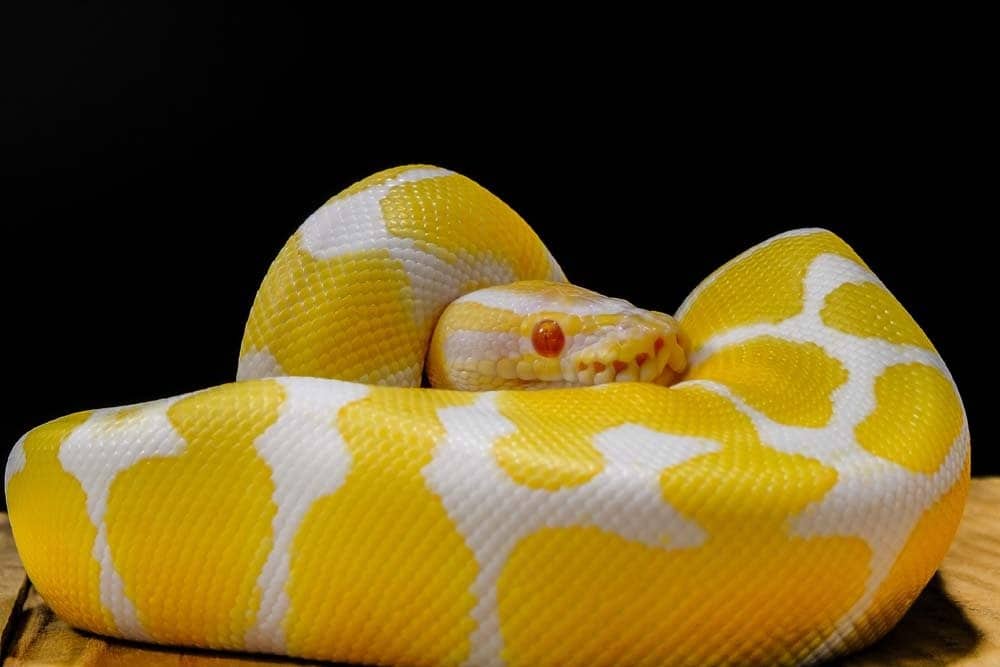
Pythons only eat
once a week, and it requires a lot of energy to digest their wholly swallowed prey.
©iStock.com/Creative Stock Studio
Python Trivia Fact
Pythons are one of the largest snake species and can reach up to 23 feet and weigh 200 pounds! But they don’t have venom. Instead, pythons squeeze their prey.
#7 Laziest Animal: Hippopotamus
Considering their gargantuan size, it’s no wonder that hippos fall on the lazy side of the activity scale. The giant mammals sleep 16 to 20 hours a day and nap in large groups. Land or water, hippos aren’t picky, they can nab some shut-eye nearly anywhere! At night, when the sun is out of sight, they lumber around in search of food. When hippos stumble upon a fertile stretch of land, they can stand in the same place for five hours and graze! Talk about meditative!
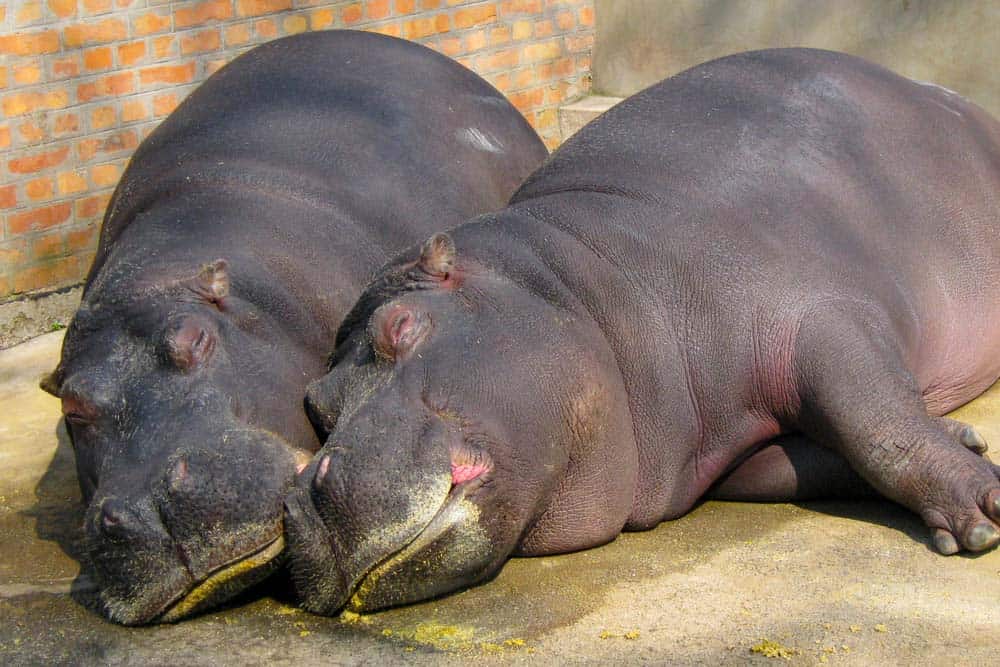
Hippos sleep up to 20 hours a day on land or in water.
©Irena Socratous/Shutterstock.com
Hippo Trivia Fact
Hippos tip the scales at over 7,000 pounds! Click here to read more about hippopotamus, which don’t eat meat.
#6 Laziest Animal: House Cat
Cats are lots of things — and one of them is lazy. Sure, when awake and catting, they’re agile, quick, and a pleasure to watch. But domesticated felines are only up for about eight hours a day. And of those eight hours, they lounge for six or seven! Researchers believe the house cat sleep pattern is a genetic legacy from when they hunted on the Sahara and needed to conserve energy to catch prey.

Scientists believe the house
cat sleep
pattern is a legacy from when they hunted on the Sahara and needed to conserve energy to catch prey.
©AC Manley/Shutterstock.com
House Cat Trivia Fact
Cats’ hearing is five times better than human adults. Click here to learn more about house cats, which were first domesticated by the ancient Egyptians.
#5 Laziest Animal: Opossum
They move at glacial speeds and sleep 18 to 20 hours a day. They’re opossums, and once they find a cozy spot with nearby nourishment, they don’t budge.
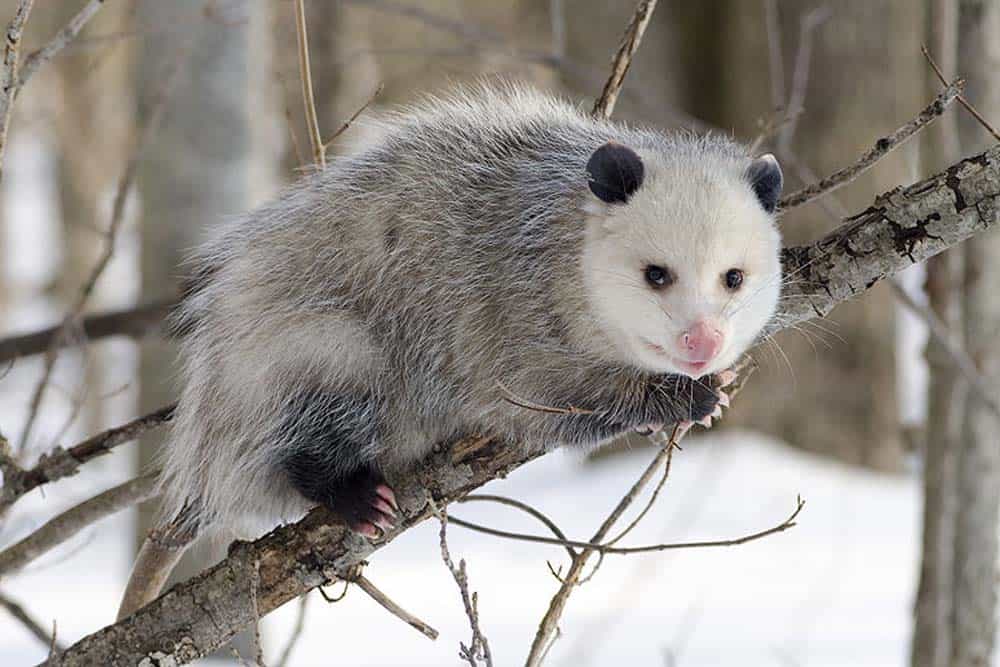
Opossums sleep for up to 20 hours a day.
©Cody Pope / CC BY-SA 2.5, via Wikimedia Commons – License
Opossum Trivia Fact
Opossums are the only marsupial in the United States and Canada. Click here to learn more about opossums, which have more teeth than any other land animal in North America.
#4 Laziest Animal: Sloth
Sloths are the poster children for laziness. The notoriously slow-moving tree-hangers sleep about 20 hours a day. When awake, their speed is set to molasses. But give credit where credit is due: two-toed sloths are marginally faster than three-toed ones.
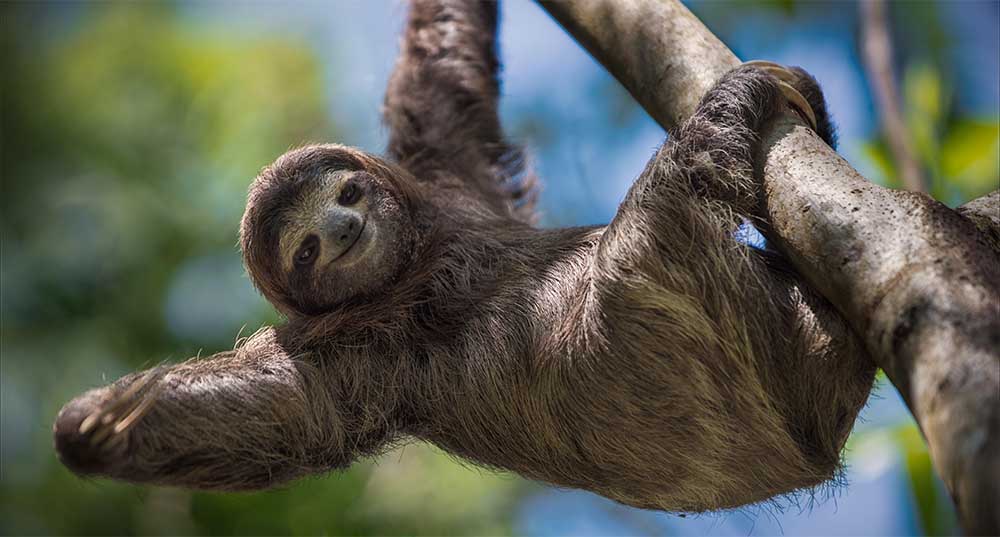
Sloths sleep for up to 20 hours a day and move incredibly slowly.
©jdross75/Shutterstock.com
Sloth Trivia Fact
Genetically, sloths are closer to armadillos than monkeys. Click here to learn more about sloths, which only go to the bathroom once a week!
#3 Laziest Animal: Koala
Koalas are the cutest — and they also rank among the laziest! The adorable fur balls only wake for two to six hours a day! Like giant pandas, Koalas’ near-constant state of slumber is food-related. Since most of their diet is eucalyptus, a super-high-fiber food, digesting it requires all the little koalas’ energies.
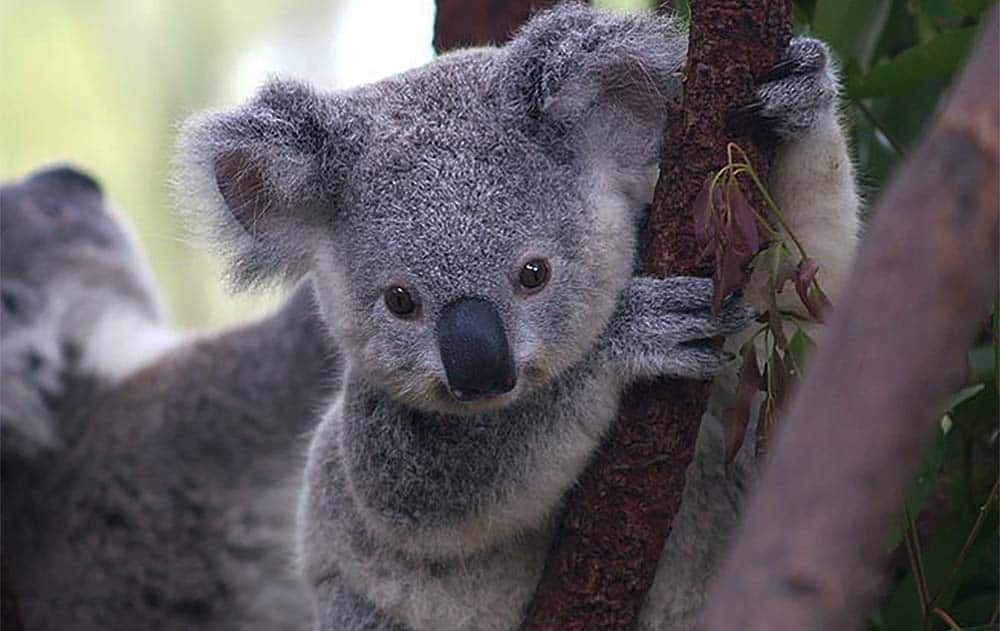
Koalas are only awake for two to six hours a day.
©Erik Veland / CC BY-SA 3.0 – License
Koala Bear Trivia Fact
People often call koalas “koala bears,” but it’s a misnomer. Koalas are marsupials, not bears. Click here to learn more about koalas, which have opposable thumbs.
#2 Laziest Animal: Lion
Lions may be the kings and queens on the jungle scene, but they’re also pretty lazy. Did you know that lions sleep 18 to 20 hours a day? But it’s understandable because Lion habitats are hot, and hunting big prey requires tons of energy. Sometimes, to prepare, they snooze for a full 24!

Lions sleep for up to 20 hours a day because their habitat is hot, and hunting big prey requires a lot of energy.
©Thomas Retterath/Shutterstock.com
Lion Trivia Fact
Lions are very social animals that live in familial groups called prides. Click here to learn more about lions, whose roars can be heard five miles away.
#1 Laziest Animal: Pygmy Blue Tongue Lizard
Pygmy blue tongue lizards don’t enjoy interacting with the rest of the world, and they’re hyper-cautious about predation. The skittish pygmy blue tongues spend their lives hanging out in spider caves and don’t leave unless forced. For sustenance, they sit with their mouths open and wait for food to fall in. The same goes for water; they rely on raindrops landing on their tongues.
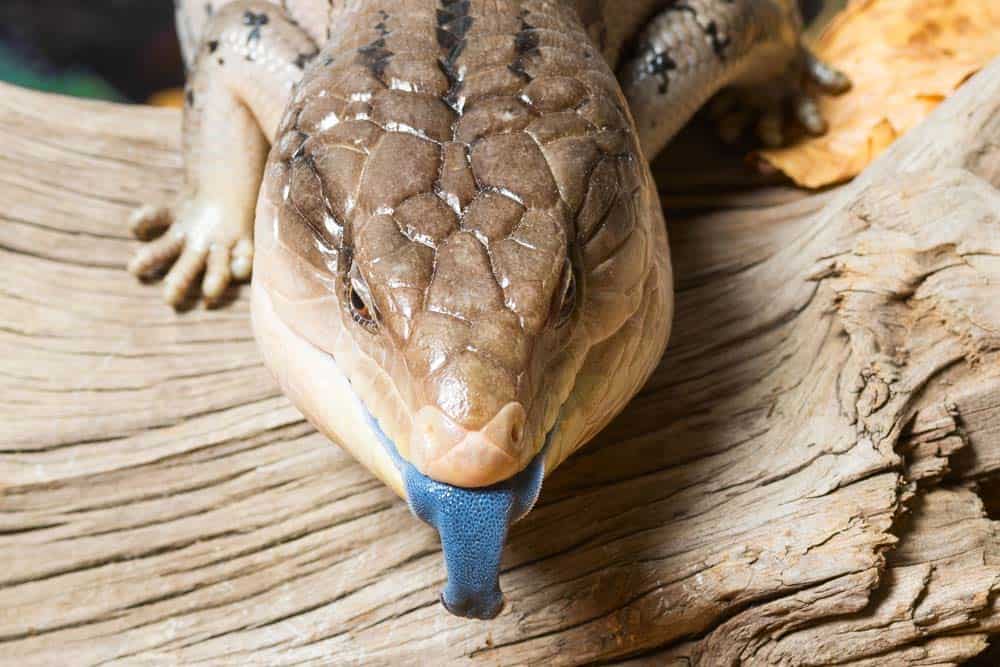
Pygmy blue tongue lizards sit with their mouths open and wait for food to fall in.
©LesPalenik/Shutterstock.com
Pygmy Blue Tongue Lizard Trivia Fact
Scientists believed the pygmy blue tongue lizard was extinct in the not too distant past — but it turns out the sneaky reptiles were just hiding!
Bonus–The Laziest Insect in the World: Zoologger
It’s one thing to snooze most of the day away and only expend enough energy to feed. It’s quite another to freeload at someone else’s expense! That’s exactly what the Zoologger beetle does, a recently discovered species native to Cambodia. Zoologgers take up residence in the nests of the Macrotermes gilvus termites, and trick the adults into believing they are termite larvae with a chemical they secrete. These particular beetles have a unique feature–a handle on their backs. The unsuspecting termites pick these beetles up by their handles and carry them to where the food is. So essentially, these beetles get a free ride and free food without lifting a finger!
Laziest Animal Quiz
We love animal quizzes! So here’s one focusing on the laziest animals on Earth!
- Which animal is lazy because it eats lots of eucalypti, which takes tons of energy to digest.
- Giant Pandas
- Lemurs
- Sloths
- Koalas
- Humans domesticated which of the following lazy animals first :
- Pigs
- Cats
- Cuckoo Bird
- Python
- Why do lions sometimes sleep for 24 hours straight?
- To prepare for a hunt
- To digest
- Because they are jungle royalty who can do anything they want
- Nobody knows
- How much do hippos weigh?
- About 1,000 pounds
- Over 7,000 Pounds
- 500 to 800 Pounds
- Over 20,000 pounds
- How many times a week do pythons eat?
- Seven
- One
- Three
- Fourteen
And that’s our list of the laziest animals on Earth. Next up: The oldest animals alive right now!
Answer Key: 1) 4 | 2) 1 | 3) 1 | 4) 2 | 5) 2
Bonus: Three More Lazy Animals
We found three more lazy animals to add to our survey of the planet’s most inactive creatures. They couldn’t be more different from each other – except for their shared love of sleeping. One of these animals staves off hunger by sleeping – another eats until it passes out.
Little Brown Bat
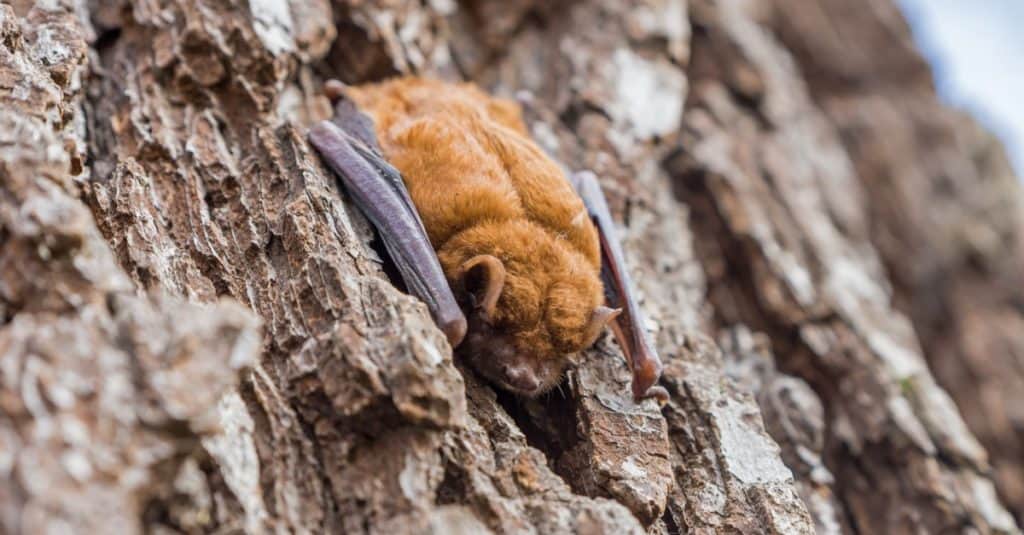
Little brown bats often sleep on the bark of a tree trunk.
©Peter Radosa/Shutterstock.com
What do brown bats do if food is scarce? Instead of continuing to search for food – they just go to sleep. As a matter of fact, brown bats tend to snooze at least 20 hours a day – if they don’t find anything to eat in four hours – they hit the hay! Their four daily hours of activity turn to zero during the winter when they hibernate. Hopefully, they have a fantastic dream life!
Tiger
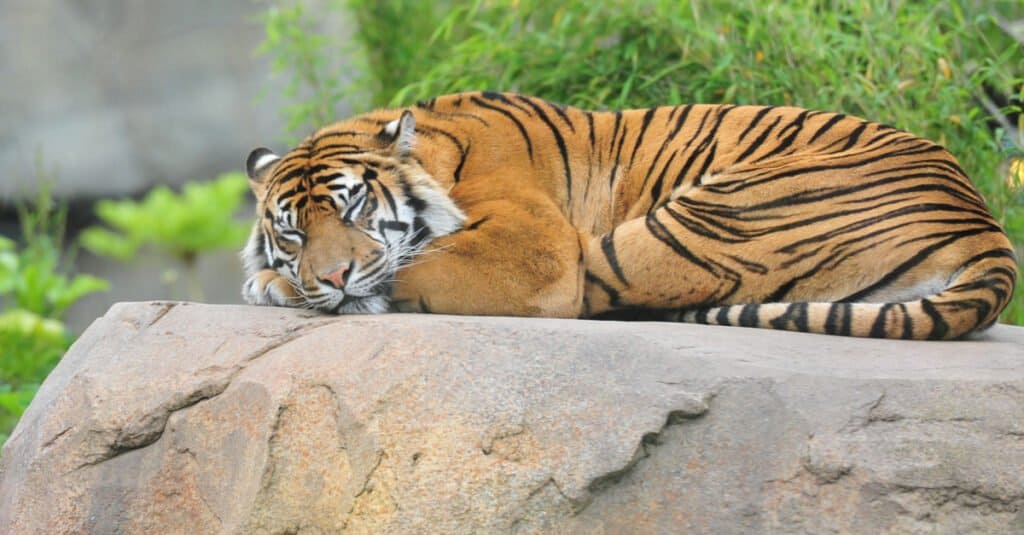
After a
tiger
eats all of its prey, it goes to sleep.
©Linda George/Shutterstock.com
Like other cats, tigers like to fill their stomachs and sleep it off. After expending a bit of energy hunting and killing prey – they gorge themselves as if they will never eat again. When they just can’t take another bite – they collapse next to whatever remains – and fall into a lengthy, luxurious slumber. Like the little brown bat – tigers are active for around four hours a day and sleep for 20.
Giant Armadillo
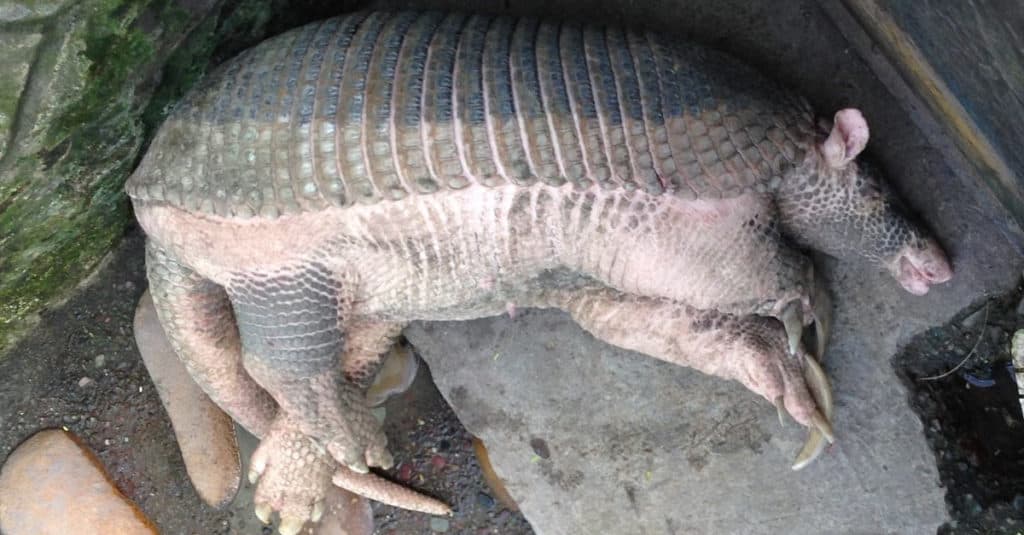
Giant armadillos sleep most of the day.
©pipeafcr / CC BY-SA 3.0, Wikimedia Commons – License
Giant armadillos are active for one hour more per day than our other two bonus lazy animals – they only sleep for 19! These strange animals waste the clarity of daylight hours to forage at night – even though they have terrible eyesight! In their defense, the only way they can protect themselves is to hide – so by digging a cozy burrow for a long slumber they manage to survive by sleeping their lives away.
Summary of the 15 Laziest Animals in the World
Here’s a look back at 15 animals that are so lazy it’s ridiculous:
| Rank | Animal |
|---|---|
| 1 | Pygmy Blue Tongue Lizard |
| 2 | Lion |
| 3 | Koala Bear |
| 4 | Sloth |
| 5 | Opossum |
| 6 | House Cat |
| 7 | Hippopotamus |
| 8 | Python |
| 9 | Owl Monkey |
| 10 | Echidna |
| 11 | Giant Panda |
| 12 | Nurse Shark |
| 13 | Pig |
| 14 | Lemur |
| 15 | Cuckoo Bird |
The photo featured at the top of this post is © clkraus/Shutterstock.com
Thank you for reading! Have some feedback for us? Contact the AZ Animals editorial team.






